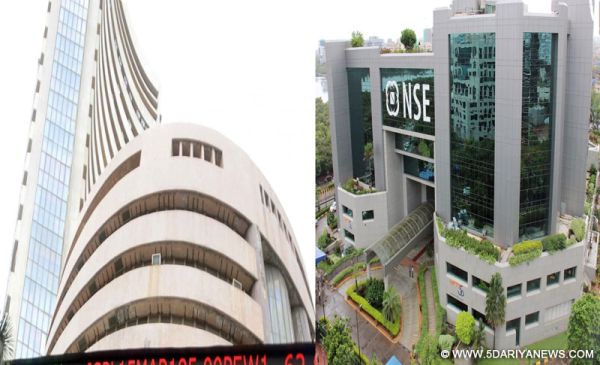Mumbai : Announcements on capital expenditure, along with policy reforms and expected sops from the the Union Budget 2018-19, will determine the trajectory of the Indian equity markets in the coming week.
According to market observers, other themes for the trade week starting on January 29, will be macro-economic growth and select industrial production data points coupled with stock-specific movement due to the ongoing earnings result season.
“The budget remains critical, being the first one after GST (Goods and Services Tax) implementation and the last full year budget before the general elections in 2019,” Devendra Nevgi, Founder and Principal Partner, Delta Global Partners, told IANS.
“The balancing act for the Finance Minister on reining in the fiscal deficit, rural populism and growth-boosting measures (private capex) remain the key themes that will be watched closely.”
Parliament’s budget session will kick off with the presentation of the Economic Survey 2017-18 on Monday, January 29, followed by the Union Budget 2018-19 on February 1.
“With crude oil prices surging, fiscal deficit projections in the upcoming budget will be keenly watched. The budget is expected to dictate the future direction of markets from here on,” D.K. Aggarwal, Chairman and Managing Director of SMC Investments and Advisors, told IANS.
Apart from the budget, the week ahead will be heavily influenced by Q3 corporate earnings and the direction of foreign fund flows. Companies like HDFC, EIH, IndianOil, Piramal Enterprises, TVS Motor Company, ICICI Bank, L&T, NTPC, Vedanta, Titan Company, Bajaj Auto and Hindalco Industries are expected to announce their quarterly results in the coming week.
“Next week, till the Union Budget announcement, markets are expected to be driven by corporate earnings and the buoyant global markets as FPI (foreign portfolio investors) flows remain strong,” Nevgi said.
Besides quarterly results, macro-economic data points like GDP figures for 2017-18, Index of Eight Core Industries (ECI) figures and the country’s fiscal deficit data up to December will be keenly watched by investors.
In addition, monthly automobile sales figures and the Purchasing Managers’ Index (PMI) manufacturing and services data will become other major sentiment drivers.
On the currency front, the rupee’s strength will be arrested by higher crude oil prices, “as it will make rupee less attractive”.
“Next week, we expect USD/INR to trade within a range of 63.30 to 63.80. Rupee is expected to remain weak against the euro and pound,” Anindya Banerjee, Deputy Vice President for Currency and Interest Rates with Kotak Securities, told IANS.
The Indian currency had strengthened by 30 paise during the week ended January 25, to close at Rs 63.55 against the US dollar from its last week’s close at Rs 63.85.
In terms of technical charts, the underlying uptrend in the National Stock Exchange (NSE) Nifty is expected to continue.
“Technically, with the Nifty surging higher to new record highs, the underlying intermediate uptrend remains intact,” Deepak Jasani, Head – Retail Research, HDFC Securities, told IANS.
“Further upsides are likely once the immediate resistances of 11,110 points are taken out. Weakness could emerge if the supports of 10,881 points are broken.”
Last week, key indices made gains on the back of revival in corporate earnings, along with the country’s healthy economic growth outlook projected by the International Monetary Fund and massive inflow of foreign funds.
Consequently, the 30-scrip Sensitive Index (Sensex) of the Bombay Stock Exchange closed at 36,050.44 points — up 538.86 points or 1.52 per cent from its previous week’s close.
Similarly, the NSE Nifty closed higher by 174.95 points or 1.60 per cent to 11,069.65 points.
(Rohit Vaid can be contacted at rohit.v@ians.in)
—IANS






0 Comments